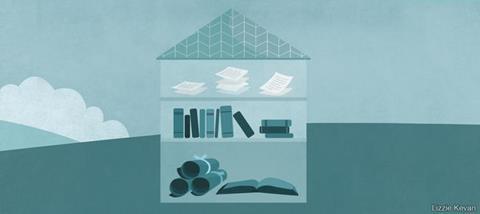
He replied, ‘Oh, nothing really.’ But the journalist persisted. ‘No, come on, pick something.’
Finally, my friend relented. ‘OK, how about a box of Thornton’s Continental Selection?’
‘Brilliant!’ replied the journalist. On Christmas Eve, the newspaper ran a feature headed: ‘What our local politicians want for Christmas’. It read like this: Jack Adams, Labour: world peace. Susan Crabshaw, Liberal Democrat: a cure for AIDS. Peter Thorneycroft, Conservative: a box of Thornton’s Continental Selection.
Now, I have obviously changed the names, but what if it was your name? What if God came to you and said: ‘What would you like me to give you?’ Our answers might be as varied as ‘unity in my church’, ‘for my friend to be made well’, or ‘a new nose’.
One night, thousands of years ago, God asked a young man named Solomon that very question. His reply was unusual: ‘Give me wisdom’ (2 Chronicles 1:7-10).
Wisdom is not the same as IQ. You can have letters galore after your name but hardly possess a scrap of wisdom. At its very heart, wisdom is a way of thinking that can tap into what God thinks. The Bible says that wisdom is more precious than rubies, and actually there is no better answer to the question, ‘What can I give you?’ as ‘nothing you desire can compare with her [wisdom]’ (Proverbs 3:15; 8:11).
My mother cleaned people’s houses. She never passed an examination in her life. But she was wise. So much so that not only as a child but as an adult – a husband, father, church leader and senior partner in a legal practice – I would often go to her and ask the simple question, ‘What would you do?’ When she died, one of my greatest griefs was that all her wisdom would simply go into the ground.
And then I remembered a story she used to tell me. It was about a village where every elderly person would write down a life lesson to pass on to future generations. These lessons were rolled up in scrolls and kept in a hut in the centre of the village. Every so often, the elders would gather the young together and read the lessons. They called that place the Wisdom House.
I have five grandchildren and last year I imagined having conversations with them; not as the toddlers they are now, but as they will be when they are grown up. I visualised sitting with them, one at a time, in front of the fire in my study. Maybe it would be when they were about to begin a first job, buy a first house or get married. Or perhaps I would talk to them long into the night when a heart had been broken or a friend had betrayed them. Maybe I could help piece back together a dream somebody had trodden all over.
So I decided to create a Wisdom House for them. I asked older people to share some of their life lessons and then threw in a few of my own. It’s so easy as we get older to feel we have nothing to give. But perhaps in our schools, churches and homes we should create more space for the wisdom of older generations to be shared.
Eventually the lessons I gathered became a book. I have of course called it The Wisdom House.
If you have time, send a life lesson to me here at Premier Christianity magazine. Perhaps we can share them in future articles.


























